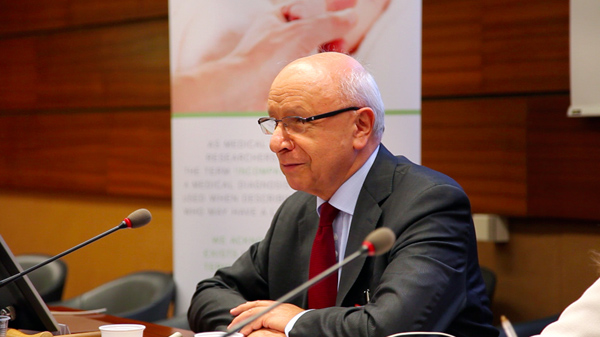Testimonies of Families & medics
What families and medical experts told the conference at the UN
TRACY
"Today we are launching the Geneva Declaration on Perinatal Care, which we hope will be supported by medical practitioners and advocacy groups worldwide, so that together we can bring about real change and ensure better care for families who face a life-limiting diagnosis for their unborn baby.
We have undertaken this global campaign because the phrase ‘incompatible with life’ is not a medical diagnosis: it misinforms parents, it pushes families towards abortion, and it denies those families a chance to spend time with their children, to make memories and to heal."
Tracy Harkin, spokeswoman, Every Life Counts
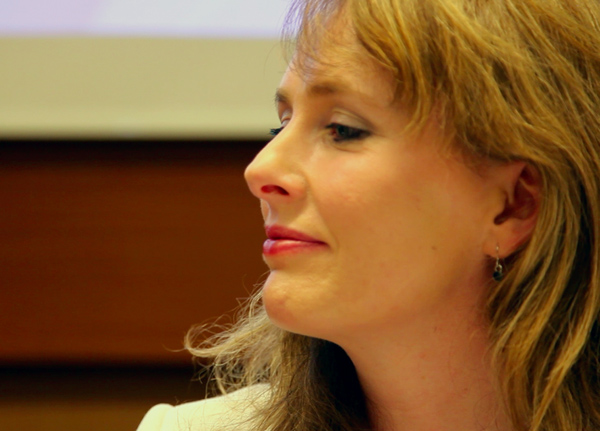
MONIKA
"For this doctor, my daughter wasn’t a child. She was a thing, ‘incompatible with life’. I had heard heartbeats at each appointment, I had felt movements for weeks, I had seen my tummy growing week by week. How could this doctor tell me that my baby was incompatible with life in the presence of all those signs of life? ‘Get rid of it as soon as possible and start again with a baby that is worth it’, were his exact words.
We chose to carry our daughter to term, convinced that limited time did not mean limited experience; a lesser body did not mean less value.
My daughter was born on July 18, 2000. As predicted, she died a few hours after her birth. But she did not live just a few hours. She was alive for 9 months in my womb, 13 hours in our arms, and her memory will live forever in our hearts. She was a beloved daughter, a sister, a granddaughter, a niece.
Her name was Anouk. She was worth everything."
Monika Jaquier, www.anencephaly.info
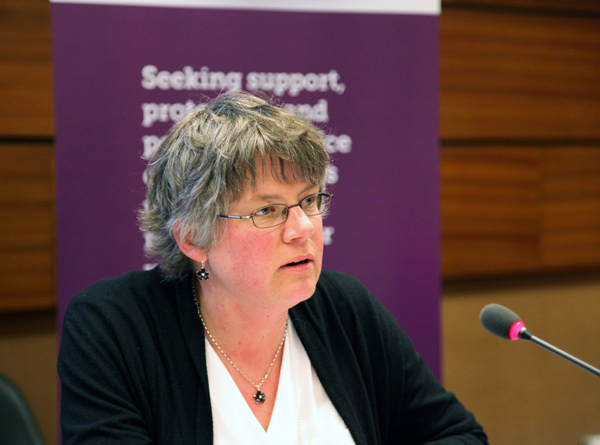
DERBHILLE
"They told me she had Trisomy 18, and that it was ‘incompatible with life’, and I had to go home and google it. I felt as if those words meant, to them, that her life didn’t matter anymore. They make you feel that your baby is a monster, or that she is not really human, even though she is waving at you from the ultrasound and you can feel her moving and kicking inside you. And they were wrong. She came home with us and lived with her family for 33 days. She was held and cuddled and loved by everyone: she brought nothing but love, nothing but joy. She brought a piece of heaven into our home.
We hear so much about legalising abortion for these babies, but abortion would be a terrible trauma for the baby and for the mother too. We want to be able to love and hold them; to have their short lives cherished the way every baby is cherished. Their disability shouldn’t diminish their right to life."
Derbhille McGill, Mother to Clodagh who lived 33 days after birth with Trisomy 13
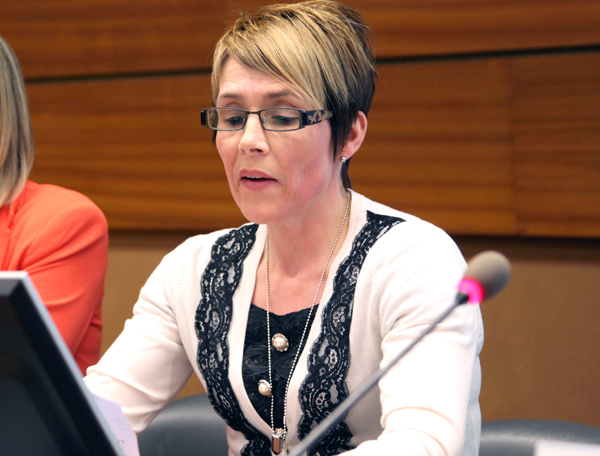
SARAH HYNES
"My baby boy Seán was diagnosed with Trisomy 18, otherwise known as Edwards Syndrome, 21 weeks into my pregnancy. That day was a complete nightmare from start to finish. I asked for some information on this condition, but was told they had no information available to give to me which left us no other option than to go home and google it! Little did I know that once they had that diagnosis on paper that my son’s life would be written off in an instant with no hope or positivity about what the future may bring. I can completely understand how some people would be led in to thinking that a termination would be ‘for the best’, and then look back on that decision with regret afterwards.
The term ‘incompatible with life’ represents everything that is wrong in this field and gives doctors an excuse to refuse to carry out beneficial medical interventions after birth. It was horrendous for me to learn that my baby would not be helped medically in any way after he was born. Basically he would be left to die. When Seán was born he was handed to me, we were put in a room and left alone to fend for ourselves. I had to demand he be examined and when I asked for assistance with feeding him I was told to ‘try it yourself, and if he doesn’t take any milk it doesn’t matter’. I was so distraught; I felt completely lost and didn’t know what to do. Seán needed help! I wasn’t expecting miracle cures here; I just wanted my son to have his basic human rights met. And I don’t feel he did, all because in their eyes, Seán was ‘incompatible with life’.
I’m proud to say that my little boy defied the odds and went full term, born on August 9th 2014, alive, and breathing on his own. He spent two amazing days in my arms, and knew nothing but love in his little lifetime. He showed us he was compatible with life, although short, it was his life all the same. He is my hero, a true inspiration to all that knew him. I will never regret my decision to carry on with my pregnancy. At the end of the day our children deserve better, we as parents deserve better, things really need to change! Please listen to us, we know what we are talking about and we will stand together to remember our little ones and fight for those who are faced with these situations in the future."
Sarah Hynes, mother to Seán, who lived for 2 days after birth with Trisomy 18
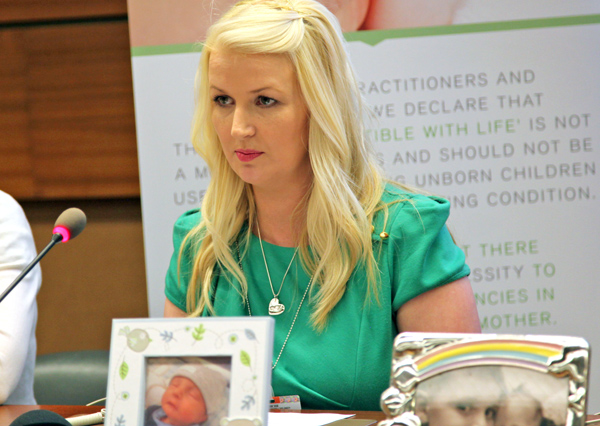
GRACE
"Words have the power to bring healing and hope to a person’s life but words also have the power to destroy all hope: that’s what the phrase ‘incompatible with life’ means to me. It is a destroying phrase that brings no hope to a vulnerable, heart-breaking situation.
My darling Lilly joy lives on in my mind and heart and in everyone else who knew and loved her, so for a doctor to say that to me at the most vulnerable time when I was petrified and scared about my baby girl surviving was so cruel and hurtful. Those words should not be part of a compassionate and loving society. My Lilly Joy died in my arms surrounded by my love and her last minutes here were with her mother and father telling her how much we loved her. These are very, very treasured memories, which we will have for a lifetime, knowing that she knew we had done everything we could to get her here.
She is my daughter she was my daughter and she will always be my daughter. Death cannot change that. We’re just hoping that these horrible words will not be used again as we shouldn’t have to hear them and we should be given all the care and compassion that every parent receives when they have a normal pregnancy not shunned and ridiculed for our decisions to help our sick babies live."
Grace Sharp, mother to Lilly Joy, born with Trisomy 18.
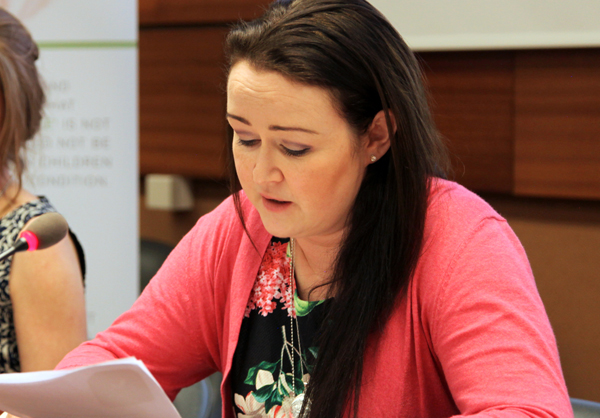
SARAH NUGENT
"My daughter Isabella was born in August 2014 and she lived for 54 days. That was her life, not a long life, but her life. I feel that the value of these short lives is being hugely underestimated. Every single second I had with Isabella was special, every person who got to meet her and love her, now grieve for her with me. I cannot explain the impact she's had. "I'll never forget the first time I got to hold her and take her in. She was so small, and so beautiful and my heart just burst with love for her.
What does this term ‘incompatible with life’ mean for a baby and its family? It means no help, no hope, and no intervention. It means every baby, diagnosed with one of these conditions is written off before they are even born. We need our babies to receive the same care and dignity as any other baby, to be given the same chances to be shown the some basic humanity; this term automatically removes these rights.
That's why I am supporting Every Life Counts. We want to show you our children: the babies who they say are not compatible with this world, we do not want babies like ours to be discriminated against anymore, we want better support for those families for whatever short time they are with us and we want their lives to be as important as the life of any child."
Sarah Nugent, mother to Isabella who lived for 54 days with a peroxisomal disorder
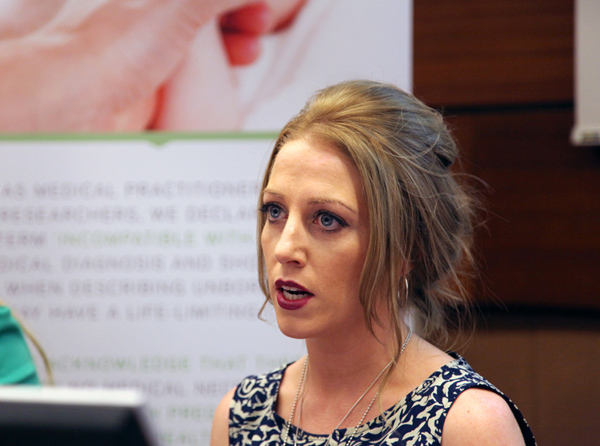
FRANCISCO AND MACARENA
"Macarena was expecting out second child, we learned about complications with the baby, and we were told the child could be born alive and then die, or be born dead. We were very frightened so you can imagine our happiness when we first heard the cry of our new born son, Nicolás.
So much so that when the doctor told us that our son had Down Syndrome, our first response was 'thank God!'" The idea that any of our children were at any point 'incompatible with life' is ridiculous, all children are made for life, they are the gift of life."
Francisco and Macarena Lancha who have two children, Nicolás and Fátima, with Down Syndrome
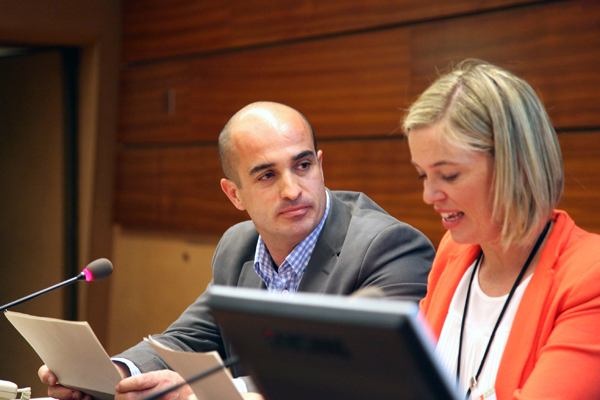
BARBARA
"My daughter Annie was born with Trisomy 13. Of course we were also given the "incompatible with life" label but we decided after doing research that we would give Annie every reasonable chance to live and to grow, and she was growing, she was actually getting somewhat fat, she gained 4lbs in the first 2 months. When she was 80 days she had respiratory distress, and we took her to a children's hospital that's known to be one of the best in the world. She died within 24 hours, the doctor told us that she needed surgery but that she wouldn't survive that surgery, and when she suddenly declined we decided the best thing was to let her pass away peacefully. However mother's instinct just nagged at me that something was wrong about what happened and we acquired the medical records and found that a "do not resuscitate" order had been placed on her file without our knowledge. Worst yet, lethal quantities of narcotics had been signed out in her name and all of the required records were absent. I said to the chief of nursing, 'I had a sense that somebody gave my daughter something lethal to cause her death, please tell me that didn't happen," and she just looked down at her lap and was silent.
The Coroner's paediatric committee reviewed Annie's death and said the final 24 hours of care were not appropriate and that it was by no means certain that Annie needed the surgery that had been described to us. So we don't know that she should have died on that day.
So I am going to tell you just a little bit about what's in the literature and how this labelling of "incompatible with life" has led to some of the negative experiences that the mothers have shared with us today. For those of you who don't know Trisomy 18 and Trisomy 13 are the second and third most common chromosomal conditions arising, they are not extremely rare as genetic conditions go.
Interestingly, back in the 1960's when these conditions were first identified, the survival rate to one month was far in excess of what it is today. The medical technology in neonatology in the 1960s was such that a 4 lbs premature baby would often die, and yet these children lived to a month in 56% of cases. So that really makes you scratch your head.
And sure enough in this citation in a recent article the doctor said "Recent studies have reported shorter survival rates leading some to suggest that patients are dying younger because infants who have trisomy 13, 18, who are born in recent years receive less aggressive care because it the expectation they will die."
This is a horrible quote published in one of the leading medical american journals, a Journal of the American Medical Association, the Lancet, : "A newborn infant with trisomy 18 should be considered as a patient with a hopeless outlook who ought not to be subjected to invasive procedures. We believe that, because of their limited life expectancy or profound mental retardation, such patients ought to be transferred from the intensive care unit and be allowed to die...But letting such children die may be insufficient; perhaps we ought to help them to die." Imagine such a paper being published.
Then I discovered that an international group that got together, a resuscitation committee, decided that children with trisomy 13,18 should not receive newborn resuscitation based on the expectation of a short life or unacceptably high morbidity among survivors. I was just shocked that such a recommendation, which has been adopted by most developed countries in the world, could occur. The Americans accepted it, Canadians and the European Resuscitation Council.
This just gives you a little sample of what's in the medical journal, these pictures, black-and-white pictures, are typical pictures that you would find in medical Journal text books and they really show the children in the worst condition it's almost like they look for a worst-case, and yet we contrast that with the pictures that families will share of their children, the beautiful pictures. There you can see the difference, the object versus the human child. This study that was carried out with parents of children with trisomy 18 revealed that all families, "all families were told there is no hope for survival and most indicated that they were advised that an induced abortion was probably the best option."
I found in Canada that we have very aggressive prenatal network to identify and to encourage termination. And this image was in a PowerPoint presentation shown at all of the hospitals in my province and the picture of the baby would have been stillborn, it's a severe case of trisomy 13 but the doctor chose to put the picture of that baby next to a cyclops and there was another picture of a baby with fuse like condition next to a mermaid and effectively this dehumanizes the children, it's saying that these aren't human children, these are monsters, these are mythical creatures. And I like to contrast that picture we just saw with this picture, which is beautiful, in it the child has the same severe abnormality and you can see the brother and sister see this as their sibling. The child has passed, that they recognize the humanity in that child.
In my own province of Canada, I found that there was the system devices program was very discriminatory in the sense that apnea monitors were specifically not allowed for infants who had apnea with the pre-existing condition. In other words with a birth defect or genetic condition, if those babies had apnea, no apnea monitor for them, in other words let them die.
And so I was very fortunate to meet two of what I call the best doctors in North America, one in Canada and one the United States. They said, "you know as doctors we were taught it was best to let these children die, it was easy for the families, don't provide any care just keep them comfortable, let them pass. But what you are telling us about the mother's testimony is that's not true, so let's do some research because nobody has ever asked the mothers about their experience or the fathers."
So we had a record number taking part for a relatively rare condition, 332 took part which is astounding. We found out so much information, but in a nutshell the contrast between what parents were told by the doctors versus what they actually experienced was remarkable - including the fact that 75% reported that their marriages actually improved, and everybody reflected on the life of their child as positive, as the mothers did today, and they were glad that they had their child."
Barbara Farlow, mam to Annie Farlow who was diagnosed with Trisomy 13
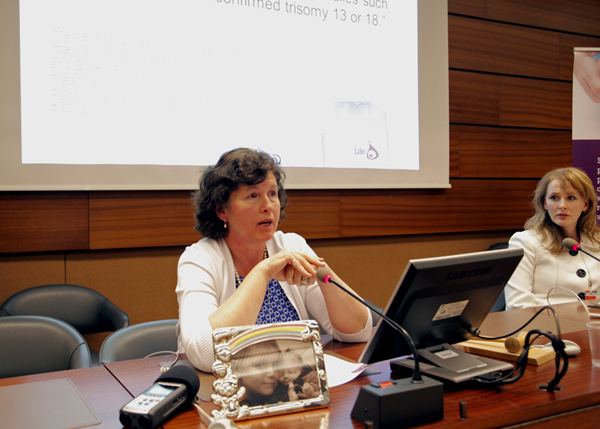
"The life and human dignity of an ill child are even more worthy of protection than those of a healthy child. "It needs to be said categorically that a doctor is not for hire for any work. The doctor is in the service of life ....interrupting human life is not in keeping with the essence of the doctor's profession."
Prof Bogdan Chazan OB/GYN
